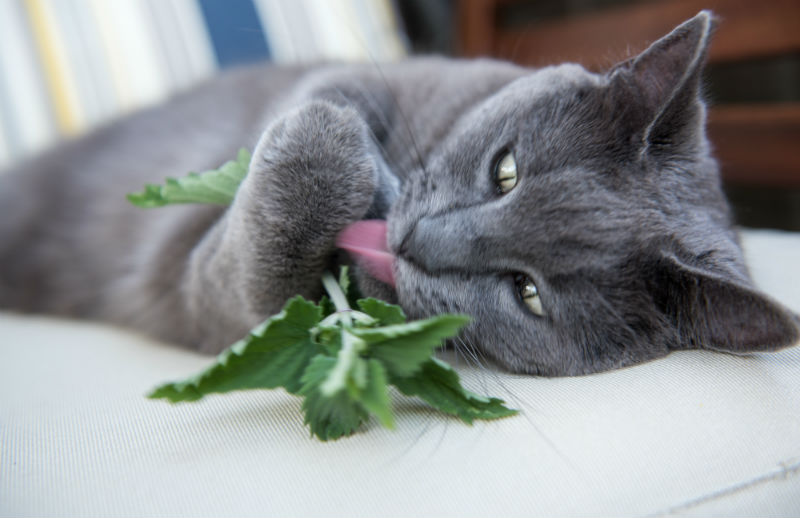Catnip is a flowered plant that contains a chemical ingredient called nepetalactone. This chemical often has a stimulating effect on cats, triggering a behavioural response. This happens when they breathe it in.
Usually, they get a pleasurable experience, resulting in them rubbing, purring, and rolling happily, but this is not always the case. For instance, in aggressive cats, it pays to be wary when giving catnip as it has the potential of increasing aggressive tendencies. Typically, catnip response lasts for only a couple minutes. In fact, cats need to wait two hours before they can experience the same pleasurable response as before. It requires this amount of time for the body to reset to its normal state.
Not all cats respond to catnip, however; almost a quarter of the cat population does not react when given the plant. Genetics can play a part – if both parent cats do not respond, neither will their offspring. This means that catnip response is a dominant genetic trait, which means it is more likely that the average cat will have a reaction than not. It should be noted that kittens below the age of 8 weeks of age may be too young to formulate a proper response.
Although catnip is considered a drug, it is non-addictive and is regarded as safe. It should be used with caution as mentioned above when it comes to aggressive cats as well as cats with a history of seizures. Giving too much catnip at once or giving it for an extended period may decrease a cat’s mental stability, change its personality or even cause seizures in extreme cases. In humans, catnip can be an herbal remedy, act as a weak sedative, be a fever-reducing agent, antibacterial or even go so far to stop muscle spasms. On the flip side, it can cause vomiting.
Most commonly, catnip merely is used to promote a pleasurable response for cats, and it does just that, but it is ultimately up to the owner to make a decision about whether they think it’s best for their feline friend. Using it in moderation is key to maintaining a healthy dose for your pet. It is always best to contact your veterinarian if you have any concerns about introducing something new to your pet, especially if they have a history of a severe medical condition. Otherwise, for those kitties who enjoy catnip playtime, they will have a lot of fun!
Written by Tracey Westhaver, Client Care Specialist Team Lead
